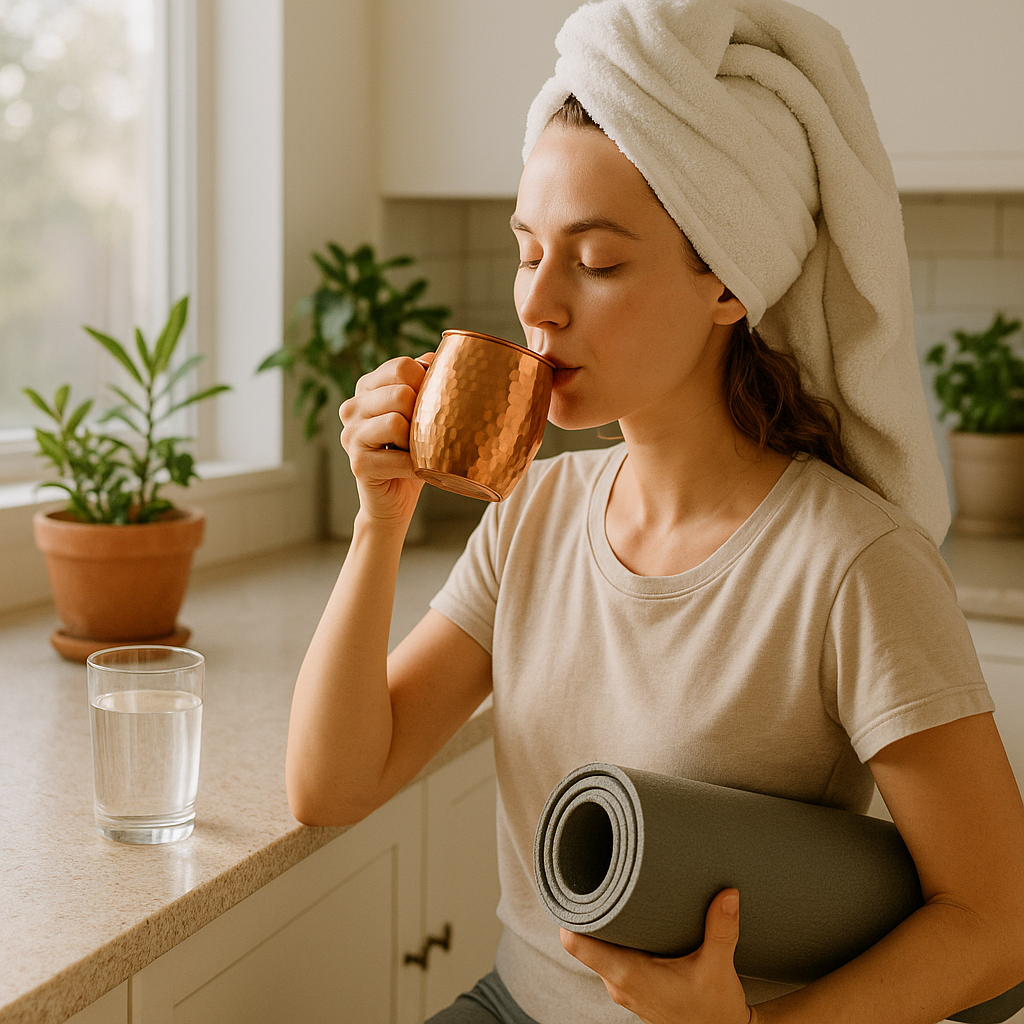The Role of Copper in Skin and Hair Health
Posted on May 12 2025

You don’t need another skincare product.
You need to understand what your body might be missing.
Start with copper.
Copper is an essential mineral—but most people don’t think about it until their skin or hair starts to change. You notice dullness. Thinning. Slower healing. These aren’t just cosmetic concerns. They might be signals. Your body may rely on copper to maintain the function of skin, connective tissue, and hair follicles.
At CopperMugs.com, we believe copper isn’t just decorative—it’s functional. People aren’t using our mugs only for aesthetics. They’re starting to explore whether simple habits, like drinking from a copper vessel, can be part of a broader wellness routine. In this article, we’ll explore how copper may support skin and hair health, and how small, natural steps—like storing water in a copper mug—may offer real value.
Copper for Skin and Hair: What You Should Know
Copper plays a fundamental role in the body’s systems. You don’t need a lot, but even small imbalances can affect your skin, hair, and overall health.
Copper is an essential mineral involved in:
- Enzyme function in human skin
- Collagen and elastin production
- Melanin synthesis for natural skin and hair color
- Tissue repair and skin regeneration
- Antioxidant activity that helps counteract oxidative stress
When copper levels are too low, it may affect skin tone, hair growth, and wound healing. For many, these changes happen slowly and subtly—until they’re too visible to ignore.
The Potential Benefits of Copper for Skin Health
In the skincare world, copper for skin has gained attention for good reason. Though research is still growing, several studies suggest copper may contribute to:
- Increased skin elasticity
- Improved skin tone and texture
- Faster skin regeneration after minor injuries
- Reduced appearance of fine lines
- Support for aged or tired skin
Copper peptides—a combination of copper ions and amino acids—are now common in many skin care products. They’re being studied for their role in supporting collagen and elastin production, which may help the skin appear firmer, more supple, and more youthful.
That said, the body’s response to topical application of copper or copper supplementation varies by person. What works for one may not for another.
Copper Peptides and Their Role in Hair Health
Let’s shift focus.
When it comes to hair care, copper is often left out of the conversation. But it may deserve a seat at the table.
Copper peptides have shown potential in studies for their effect on the hair follicles. Some early research suggests they may:
- Support new hair growth
- Extend the hair’s growth phase
- Reduce inflammation on the scalp
- Strengthen fragile strands
- Some users report thicker-feeling hair and slower graying, which may be connected to copper’s role in melanin production.
Does this mean copper will prevent hair loss or restore lost color? Not necessarily. But for individuals with low copper levels, it might be one piece of the larger hair health puzzle.
Are You Getting Enough Copper?
Most of us don’t track our intake of copper, yet it plays a key role in dozens of biological functions.
Symptoms of copper deficiency can include:
- Slow wound healing
- Pale skin or loss of pigmentation
- Brittle or thinning hair
- Chronic fatigue
- Increased susceptibility to illness
These signs alone don’t prove a deficiency, but they can raise questions worth exploring. If you’re experiencing any of the above, consider speaking to a medical professional before making changes or starting copper supplements.
A Simple Way to Use Copper: Start With Hydration
Instead of jumping into supplements or specialty products, you might begin with an ancient habit: storing drinking water in a pure copper vessel.
When water rests in a copper mug or bottle, copper ions are slowly released—a natural process sometimes called the oligodynamic effect. While the exact impact on copper uptake depends on time and conditions, the practice is easy to try, low-risk, and rooted in centuries of tradition.
Here’s how to do it:
- Fill a clean, pure copper mug or bottle with filtered water
- Let it sit for 6–8 hours or overnight
- Drink it first thing in the morning
It’s not a silver bullet. But over time, this simple routine may contribute to overall balance—especially if your diet is low in copper.
Understanding the Risks of Copper
Balance is key. While copper has numerous benefits, excess intake can pose health risks. Copper toxicity is rare but may occur through high-dose supplements or long-term overexposure. Always be mindful of both ends of the spectrum—low copper levels can cause problems, but too much copper isn’t the answer either.
Potential adverse effects of excessive copper include:
- Nausea or stomach discomfort
- Liver strain
- Mineral imbalances (especially with zinc)
Talk to your doctor before you take copper supplements or make major changes to your routine.
Final Thoughts: Copper May Support Health from the Inside Out
Copper plays a foundational role in the appearance and resilience of your hair and skin. Whether through peptides, supplements, or simple lifestyle practices like drinking water from a copper mug, this mineral may help you support natural, sustainable wellness.
You don’t need a shelf full of bottles.
You need a routine that works.
Start small. Stay consistent. Let your body respond.
Disclaimer: The contents of this website are for educational purposes and are not intended to offer personal medical advice. Before deciding to drink out of copper, talk to your doctor or another medical professional.

